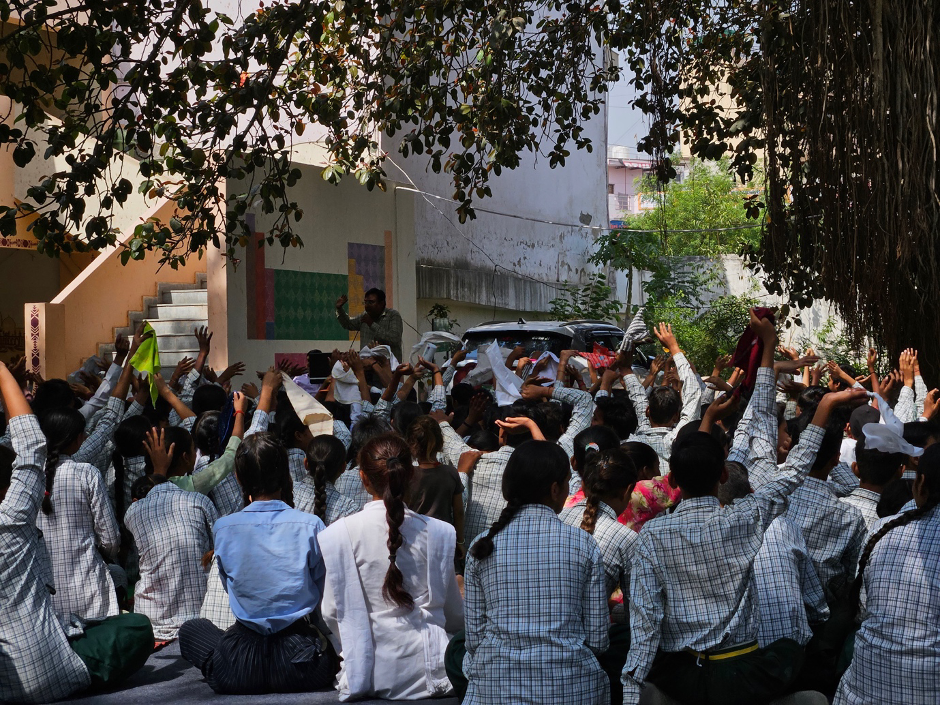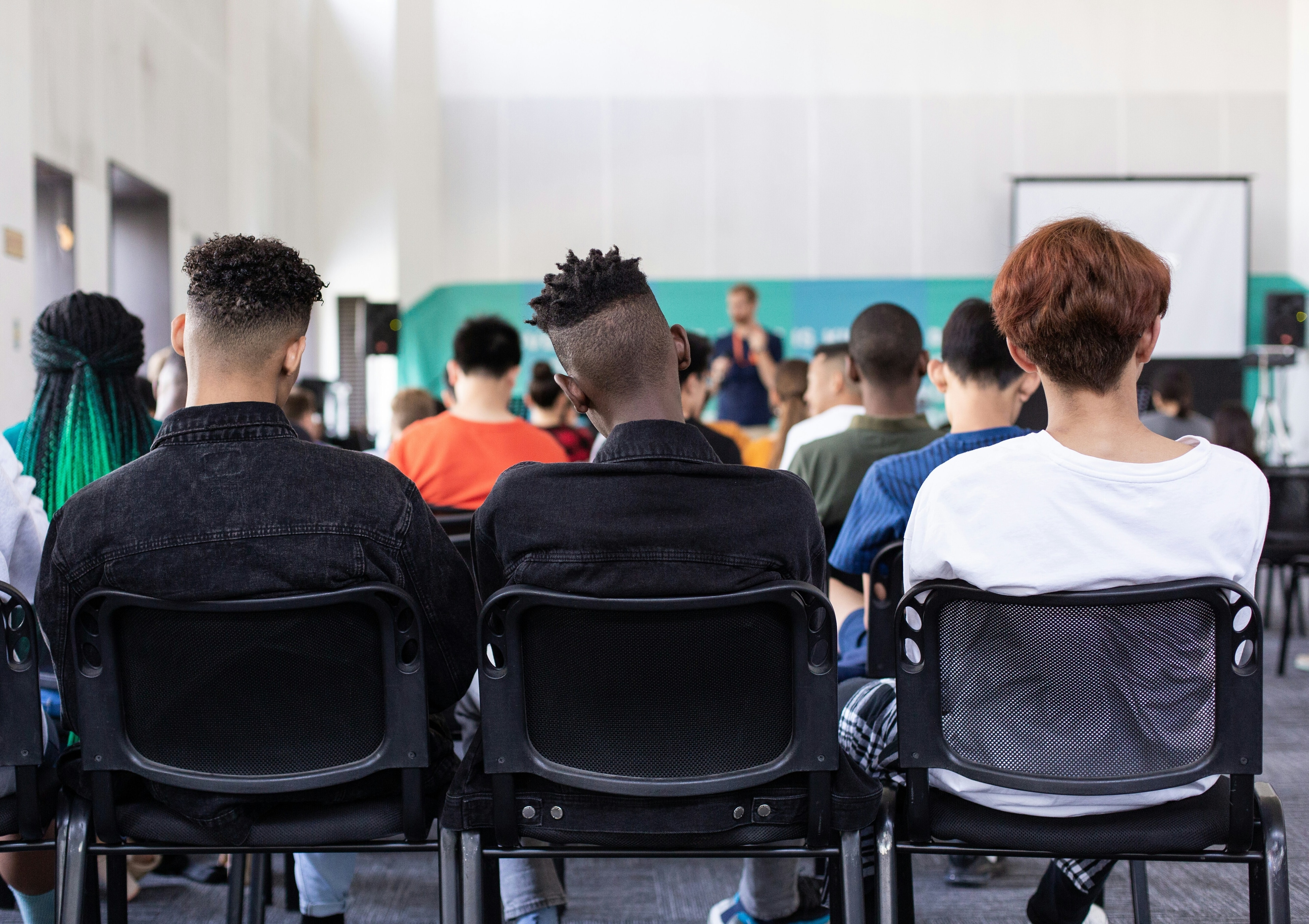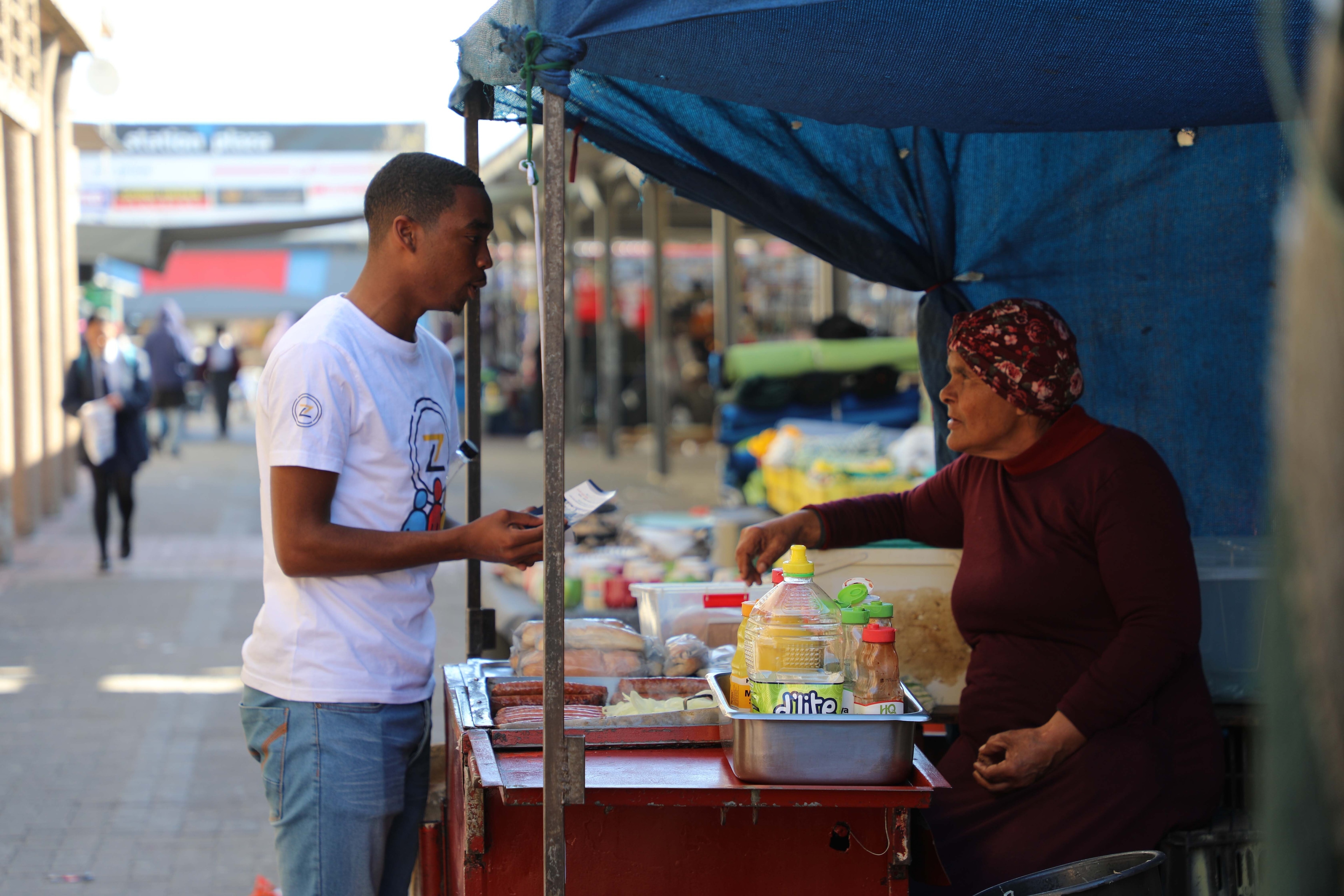We must give young people a platform to lead the COVID-19 recovery

Image: Liam Edwards/Unsplash
Jagan Chapagain
Secretary-General and Chief Executive Officer, International Federation of Red Cross and Red Crescent Societies (IFRC)- August 12 is International Youth Day.
- We call on the world to acknowledge that young people offer solutions and leadership.
- Governments, UN agencies, corporations and civil society must put young people at the center of the COVID-19 recovery.
Fifteen percent of the world’s population – some 1.2 billion people – are aged between 15 and 29. On International Youth Day we call on the world to acknowledge that young people offer solutions and leadership.
As leaders of the world’s six largest youth organizations, our movements collectively reach 250 million young people every year. Our networks of national organizations, local chapters, volunteers and young changemakers tell us that now is the time for young people to be heard. They need to be recognized as part of the solution to the world’s biggest challenges – from climate change to gender inequality to the impact of COVID-19.
There are three reasons why the voice of youth is more important than ever.
First, the world gets ever younger, with 10 billion more people are yet to be born in this century. This exponential growth will continue to be uneven, with concentration in more populous and less developed countries, resulting in more mouths to feed, more young people to educate and more jobs to provide.
Second, the present crisis of a fast-warming planet requires immediate action. Greta Thunberg spoke for millions of her peers when she told the UN two years ago that, mired in climate inertia, global leaders had stolen not just her childhood, but her dreams for her future.
Third, we believe that this is young people’s kairos: their moment, their time. The COVID-19 pandemic has accelerated and heightened that moment, magnifying both crisis and opportunity.
The COVID-19 pandemic has highlighted the inequity and vulnerability of global society. It may affect us all, but it discriminates to the extent that many countries and many groups of people are less equipped to deal with it.
It has disproportionately affected young people, and especially young women and girls. It has disrupted their education, their training, their jobs, their relationships and their mental health. They knew all these challenges prior to the pandemic, and then they became its pariahs: largely ignored in policy response and often blamed for the spread.
We have seen how COVID-19 has made the vulnerable even more vulnerable. Vaccine inequity is a fact. Gender and domestic violence have increased significantly, as well as teenage marriage of young girls.
Leading through innovation
Yet this moment also brings a real opportunity for young people. The untold story of COVID-19 is that young people are the solution, not the problem.
At the end of last year, our "Big Six" youth organizations came together - with the backing of the United Nations Foundation and the World Health Organization - in a Global Youth Mobilization to highlight and promote young people, their ideas and their innovative solutions to the impact of the virus and the many community challenges that have come with it.
What we have seen is that given a platform, agency and inter-generational accompaniment, young people can become partners in providing solutions across communities and countries. They are addressing mental and physical health, mitigating the impact of disruption to education, training in digital skills, improving employability through support to livelihoods and financial literacy, providing vocational training and skills, raising awareness on vaccines and other forms of COVID-19 prevention.
How can we make this great moment of opportunity for young people official?
We are calling on governments, UN agencies, corporations and civil society to put young people at the center of a great post-COVID policy reset.
Governments must strengthen their youth policies and put money behind them. They must commit to having children and young people from diverse backgrounds playing a direct role in policy development and decision-making. They must ensure equal access to healthcare for children and young people, whatever their status. They must invest in user-friendly, low-cost systems to ensure children and young people have digital access to education, both formal and informal – within school and without. They must commit to upskilling and reskilling to future-proof careers. In all these commitments, they must pledge to pay even greater attention to girls and young women.
The intergovernmental world must remain fully behind this. The UN, the EU, the African Union and the Commonwealth all recognize the need for a coordinated effort to put young people center-stage.
Big and small businesses, too, must continue to play their part in investing in young people’s futures. It’s not just the work of their charitable foundations; it is core business, and it’s also good for business. Consumers are recognizing the value of ensuring we have businesses that put the future and young people first.
And we in civil society have a big role to play. We are not service providers to young people, but facilitators of their ideas: we’re supporters, followers, and co-creators, providing space for them to lead.
And when they lead, they lead well. It has been inspiring watching young Olympians in Tokyo these last two weeks – many of them teenagers – competing not just with extraordinary skill and determination, but also with humility and humanity, rejoicing in others’ success.
Young people are already on the podium: that’s where they must stay.
Don't miss any update on this topic
Create a free account and access your personalized content collection with our latest publications and analyses.
License and Republishing
World Economic Forum articles may be republished in accordance with the Creative Commons Attribution-NonCommercial-NoDerivatives 4.0 International Public License, and in accordance with our Terms of Use.
The views expressed in this article are those of the author alone and not the World Economic Forum.
Stay up to date:
Youth Perspectives
Forum Stories newsletter
Bringing you weekly curated insights and analysis on the global issues that matter.
More on Youth PerspectivesSee all
Christie Burley and Inés Yábar
November 5, 2025







